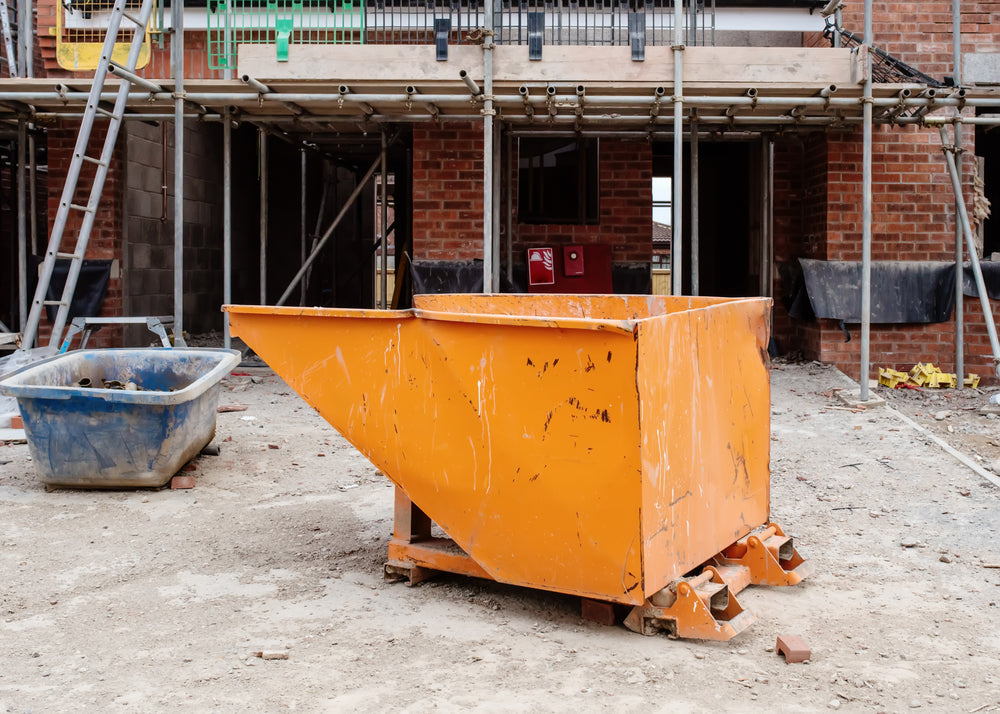
How to Maintain and Care for Your Forklift Skip to Ensure Longevity
Your forklift skip is a crucial part of your business, ensuring safe and effective waste management year-round. Having to replace your forklift skip regularly shouldn’t be high on your list, and with proper maintenance and care, you can guarantee that your forklift tipping skip will last.
With the correct care plan in place you can certify that your forklift skip operates efficiently and safely over time.
Find out our guide on maintaining your forklift skip to ascertain longevity.
Compliance with PUWER and LOLER
Every 12 months, your forklift skip is required by law to undergo a thorough examination to ensure that its condition is fit for use.
This examination is determined by the Provision and Use of Work Equipment Regulations (PUWER) and the Lifting Operations and Lifting Equipment Regulations (LOLER).
These regulations stipulate that every type of tipping skip should comply with PUWER, however, if your tipping skip can be lifted by a crane when there are materials inside it, then it should also be covered by LOLER.
The thorough examination of your forklift skip certifies that, at the time of testing, the item and each of its components are in a safe condition and fit for purpose for operational efficiency.
Failure to comply with PUWER and LOLER could result in prosecution by the HSE—the Health and Safety Executive.
Regular inspections
A forklift skip needs to be thoroughly examined every twelve months by a company accredited by the CFTS.
The CFTS was established by the UK Material Handling Association (UKMHA) in 2004 to create a strict set of guidelines for ensuring safety in the materials handling industry.
The Thorough Examination, created by the CFTS, has clear standards and procedures that must be followed to ensure that your forklift tipping skips are safe for use.
Regular inspections allow you to identify wear and tear, as well as other potential safety issues, and fix them before they become bigger, irreversible problems that cost you more.
Maintenance tips
Regular maintenance tasks that can be performed by any forklift skip operators or internal maintenance teams include:
Checking for rust - Rust can cause huge problems for the longevity of your skip, so make sure that you’re regularly checking for early signs of rust to put things in place to ensure it doesn’t get any worse.
If you’re working with materials that are likely to rust a tipping skip, consider galvanised steel skips instead.
Mechanism operations - Ensure that you regularly check the smooth operation of the skip’s mechanisms. If certain parts of the skip aren’t working correctly, you may need to replace the skip as a whole.
Regular cleaning - Frequently clean the interior of the skip to ensure there isn’t any lingering waste or residue. By cleaning your skip regularly, you prevent materials from building up that could potentially lead to corrosion or damage. If you want to guarantee a great clean of the inside a skip, use a pressure washer to blast away any odours and potential contaminants.
Proper loading - Keep your skip well maintained by loading any waste properly and evenly distributing the weight across the skip. This stops stress on one area of the skip. Don’t overfill the skip either, as this can cause problems down the line too.
Appropriate placement - When in use, Ensure that your skip is stored on appropriate flooring. Place it on a flat and stable surface, as soft ground can weaken the skip's integrity.
Handling repairs and refurbishment
Through your regular inspections, you can identify any damage or wear to your skip and address the problem immediately to prevent further deterioration of your forklift tipping skip.
By repairing your skip you can extend the lifespan of the equipment and reduce the impact on the environment.
Custom solutions for unique needs
Some forklift skips might be used in unique operational environments that require bespoke maintenance solutions. If you’re in this category, then it’s best to speak to specialists who can provide you with tailored advice or modifications to meet your specific needs. Get in touch with our experts today, who will be happy to provide you with expert advice.
By regularly maintaining and caring for your forklift skip, you can ensure that you have a waste management tool that will last and serve you well.
Establish a regular maintenance schedule that includes our tips from above, and consult with professionals for Thorough Examinations on a yearly basis to comply with the law and certify that your forklift tipping skip is safe to use.
